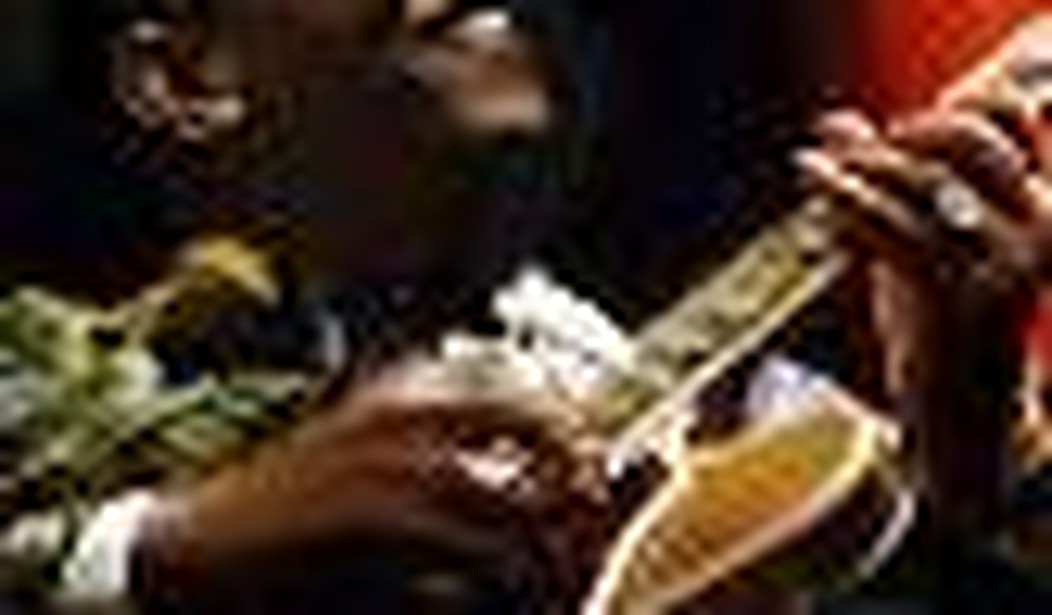Reaction in Britain to Barack Obama’s victory has been predictable, given that the country leads Europe and much of the world in knee-jerk anti-Americanism — which, more often than not, is actually anti-Republicanism — and is also consumed with its own version of white guilt (post-colonial in our case), and entranced by notions of multiculturalism. Commentators have obsessed over the racial aspects of the election, and have expended so much energy gloating over the demise of George Bush that you’d think that it was he, and not McCain, whom Obama had defeated. But a few pundits have managed to control their excitement long enough to look at the challenges the new president will face, and one or two even sound a cautionary note. Amid the endless references to Martin Luther King’s “I have a dream” speech, and much talk of transformational presidencies and Republican wipeouts, most commentators at least acknowledge that America is still fundamentally a center-right nation. An exception is Anatole Kaletsky, of the generally conservative Times, who, in one of the more far-fetched analyses, claims Obama’s victory signals a dramatic shift to the left:
The election of the first black president — who happens to be a brilliant and unabashed intellectual with a left-wing record on the environment, healthcare, abortion and gun control — will surely transform social attitudes and redirect the bias of the Supreme Court.
Kaletsky appears to think Obama’s victory signals a widespread endorsement of those policies, but ignores the fact that Obama shifted towards the center on virtually every issue during his campaign, largely steered clear of policy specifics, concealed or obfuscated his intentions on key issues (“bankrupting” coal plants, gun rights), and outright lied about others (abortion). There’s also no guarantee that Obama will be able to “redirect the bias” of the Supreme Court, even if he serves two terms, given the relative youth of the four conservative-leaning justices and “swing” vote Justice Kennedy. And he rather undermines his own argument that this election was all about social issues by admitting that the economic crisis was the deciding factor. Oddly, though, given that Kaletsky is an economics specialist, he contrives to blame the meltdown entirely on Bush, with no mention of Fannie, Freddie, or the Community Reinvestment Act; clearly he has an anti-conservative polemic to deliver, and isn’t going to let the facts get in the way.
A very different, and rather more informed view is provided by Gerard Baker, the Times’ U.S. editor. He acknowledges the impressive scale of Obama’s victory but adds “there was plenty in Tuesday’s results to give pause to anyone tempted to think that the country is about to reinvent itself as a European-style social democracy.” Baker points out that Obama “won a lopsided victory in the electoral college, thanks to quite narrow victories in a number of states,” and adds that it was surprising the Democrats didn’t do better overall, given how much they had going for them. And he pours water on Kaletsky’s notion of a profound cultural shift by noting the success of bans on gay marriage in California and Florida, and other state ballots on social issues. Among the American commentators invited to hold forth by the British press is Alice Walker — author of The Color Purple and one of the elder stateswomen of the left’s “moonbat” wing. Also in the Times, Walker expresses her concern over Obama’s repeated pledges to “kill'” Osama bin Laden. And she plans to have a word with him about it. I’m not kidding. Her article begins:
I have sent out a request that Barack Obama, or Michelle Obama, get in touch with me. While waiting for a response (and imagining how busy they must be), I decided to write down my thoughts.
Walker also cropped up on the BBC’s post-election show. When anchorman Jeremy Paxman attempted to speak to her via video link the sound wasn’t working, and Walker wasn’t aware she was on camera. She appeared to be in a trance: her eyes were shut, and she was rolling her head from side to side, and back and forth, in an alarming manner. She was clearly deeply immersed in the fantasy world she inhabits, but snapped out of it to give her reaction to Obama’s win:
I thought that the planet had won a great victory. I also thought that it gives us all an opportunity for the hardest work we will ever see that’s coming ahead. We have to all work together to change the planet along with someone who we can trust to help us.
First Oprah, now Walker. And they complained about the influence of evangelicals on George Bush. The highly excitable Paxman had set the tone for the BBC’s coverage by claiming that Obama’s challenges included “a planet burning itself up.” And later he speculated as to whether Obama could be a “heir” to JFK — although I’m guessing he didn’t have a new invasion of Cuba in mind — and, speaking over footage of Kennedy’s funeral, wondered whether “Obama’s Camelot” would have “its own dark legacy.” But Paxman also has a mischievous streak, and he made Jesse Jackson squirm by reminding him both of his “cut his nuts off” remark about Obama, and of the fact that Obama had essentially succeeded where he had failed. Paxman also suggested to Congressman James Clyburn that Obama wasn’t strictly an African-American because he wasn’t descended from slaves — not what you’d call entering into the spirit of the occasion.
The other inevitable talking point doing the rounds in the British media is whether this country could one day elect a black prime minister. The consensus seems to be that it will be a while yet, given the fact that blacks make up only three percent of the UK population, as opposed to 13 percent in the U.S., and the relative lack of social mobility in Britain. The Guardian‘s Sunder Katwala provides a sensible assessment, concluding that the obstacles that prevent more ethnic minority candidates being elected to Parliament are far from insurmountable, and are as much about class and gender as about race.
In general the left-wing Guardian was, not surprisingly, ecstatic about Obama’s victory — but there are already signs that even Obama may not be quite left-wing enough. In a column which, in true Guardian style, begins with an exaggerated account of civilian deaths in a U.S. air raid in Afghanistan, Jonathan Steele demands that Obama should declare the “war on terror” over, and start pulling troops out of Afghanistan. If Obama’s makes good on his commitment to step up the U.S. effort in that country — and, if necessary, extend operations into Pakistan — Steele is one of many leftists who are going to be disappointed. The wars in Iraq and Afghanistan are also the subject of a piece in the conservative Telegraph by Con Coughlin, who is one of the few British commentators to spare a thought for the man Obama will soon replace:
Mr Bush would be the first to admit he did not make these decisions to improve his approval ratings; he made them because he believed they were the right thing to do. And if nothing else, he will leave office knowing that he has achieved his primary goal — making sure America did not suffer another disastrous terrorist attack like 9/11.
Coughlin writes that Afghanistan is likely to become the defining foreign policy issue of Obama’s presidency, as Iraq was for Bush’s two terms, and warns that Obama will be looking for more support — and specifically more troops — from the European allies who have greeted his election with such enthusiasm:
Europe’s political establishment may be rubbing its hands in eager anticipation of Mr Obama becoming America’s 44th president, but the gloss will soon wear thin if they do not give him the practical support he wants.
Also at the Telegraph, Jeff Randall has an interesting analysis of how Obama prevailed in Florida. He notes that the Cuban-American vote shifted toward Obama, as hostility towards Democrats that has lingered since the Bay of Pigs fades among a younger generation that regards itself as more American than Cuban. But Randall says the biggest factor working for Obama was that fears over the economy united the state’s myriad racial and age groups:
Dewy-eyed liberals like to think the election was all about a burning desire for a fairer America (whatever that means), a more racially tolerant America, a more diplomatically sensitive America. … But, from where I was sitting in downtown Miami, a hotbed of hustling, bustling American enterprise, the picture was very clear. Most people wanted to pay lower taxes and that’s what Mr Obama was promising.
Back at the Guardian, Timothy Garton Ash, while getting caught up in the excitement of Obama’s victory rally, acknowledges what few of his colleagues are prepared to admit: that the world’s media, and the world in general, will inevitably apply a double standard when comparing the Obama and Bush presidencies:
No right-wing Republican could insist more than Obama does on American uniqueness, and exceptionalism, manifest destiny. His proclaimed purpose is “to make this century the next American century.”
If George W. Bush said that, we from the rest of the world might regard it as rank nationalist arrogance. Because it’s Obama, we somehow accept it.









Join the conversation as a VIP Member